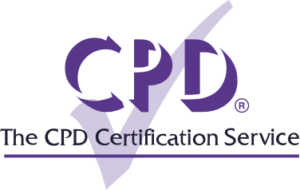In this Construction CPD Guide
Why do Construction workers need CPD?

Construction is considered high risk due to the nature of work carried out on sites and the hazards to which workers are exposed. Therefore, there is the potential for serious injuries and ill-health when working on construction sites. The recent construction statistics from the Health and Safety Executive show there were 40 fatal injuries to workers (mainly resulting from falls from height), 61,000 non-fatal injuries and 81,000 workers suffering from work-related ill-health (HSE statistics).
All construction firms, regardless of their size and nature, must ensure their workers receive training. Not only is training a legal requirement under health and safety law, but it also gives workers the knowledge of the risks they may face and what they need to do to protect themselves and others around them.
Regular Continuing Professional Development (CPD) training enables construction workers to have up to date knowledge on health and safety policies, risks and legislation. CPD can also improve health and safety standards on construction sites.
What our customers have to say
Dan King
Mobilisation, Training & Performance Manager

Sophie Aiken
HR Manager

Harriet Lee
Retail Recruitment Manager

What CPD courses do Construction Workers need?
Construction workers can come across many different hazards on sites that can harm their health and safety, e.g. machinery, power tools, hazardous substances, manual handling, noise, vibration, electricity, work at height etc. Therefore, the courses that construction workers need should provide them with knowledge on the hazards and ways to reduce the risk of injuries and ill-health whilst working on sites.
The latest HSE construction statistics highlight that musculoskeletal injuries were responsible for the highest percentage of work-related ill-health cases. Falls from height were the cause of most of the fatalities on construction sites. Slips, trips and falls and manual handling were responsible for the highest percentage of non-fatal injuries. These statistics highlight areas in which workers may want to concentrate on first. However, construction workers should have CPD training on all potential site hazards and risks.
Download our CPD trackerA guide to CPD for Construction Workers
Construction is a large, diverse and constantly changing industry, which is moving at a fast pace. Therefore, construction workers need to ensure they keep abreast with the latest developments and legislation.
Construction work covers a wide range of roles and activities and usually requires a high degree of competence. This means having a combination of training, knowledge, skills and experience to carry out activities safely. Regular CPD training is a vital part of achieving competency in construction.
There are many construction professional bodies and member institutions that make CPD a mandatory requirement for members. Some professional bodies may even require members to undertake a certain number of CPD hours annually. Employers may also require workers to undertake CPD as part of their role.
If you are not already aware of the CPD training required for your role and responsibilities, you should ask your employer and check industry standards. You can also think about the gaps in your knowledge and skills and what could help you improve.
It doesn’t matter whether you are a tradesperson, a small builder, a contractor, or you work for a large construction firm. Our e-learning courses will help you with your CPD.
CPD courses
Many things count towards your CPD, and they should be relevant to you and your goals. For example, you can attend seminars/lectures, read books/journals, mentor, deliver training and undertake work-based learning. You can also complete e-learning, which can also count as part of your CPD.
Our e-learning courses are CPD certified and accredited under the CPD Certification Service. When you complete your course, you will gain an accredited qualification and CPD points (hours). The more training courses you undertake, the more knowledge and CPD points you will achieve.
To make the most out of your learning, you should adopt a structured and consistent approach to your CPD by undertaking training that meets your personal development objectives.
CPD certificates
Once logged in, you can work through your course in a few hours (depending on the type of course), and there is no time limit for completion. You can work through it at your own pace. Very rarely do students need help, but if you do, our staff are here to assist.
After completion of your course, including passing the quiz, you can download your PDF certificate immediately. Our professional-looking certificates are fully CPD regulated. They can provide evidence of training to enforcement authorities, construction clients and health and safety personnel.
You can log onto your account at any time and download your certificates. You can keep them on file or email them through to your manager. It is also easy to print off a hard copy of your certificate and keep it with your other qualifications and awards in your CPD portfolio. You will also receive a copy of your certificate in the post.
Logging CPD hours
Every course that is CPD accredited will have a number of points assigned to it. One CPD point is equal to one hour of active learning, which means that you will get one point for every hour you spend on a CPD activity
The number of points you will earn on completion of the course is in the course description, along with an estimated time to complete. This will give you your CPD hours.
You can keep a log of your CPD hours for the year and make a record of whether you have met your learning objectives. It is important to maintain an accurate CPD record as part of your CPD portfolio and personal development plan.
CPD may not be a mandatory requirement for your role, but it is a worthwhile exercise nevertheless. Logging CPD hours and keeping training records will have a positive impact on your overall career in construction. Also, knowing more about the risks you may face on site will help keep you and your colleagues safe and healthy at work.
Keeping evidence
Your certificates and any other documentation relating to your CPD should be retained as evidence. Some professional bodies require CPD records to be kept for a period of five years, and employers may want you to keep them for longer. You will need to check any requirements for CPD documentation retention times specific to your role.
There is not a prescribed format when recording your CPD. Although, you may be required to use a specific format by an employer or professional body
Your CPD record may be audited by your employer or by an external party, such as enforcement authorities and professional bodies. This is another reason why keeping evidence of your CPD is important.
Renewing CPD certificates
It is recommended that you renew your CPD certificate every two years. However, your employer may want you to complete a refresher every year. This will depend on the rules within your company.
Refresher training also counts towards your CPD. Therefore, you can log CPD hours for every course you undertake, including those taken as a refresher.
























